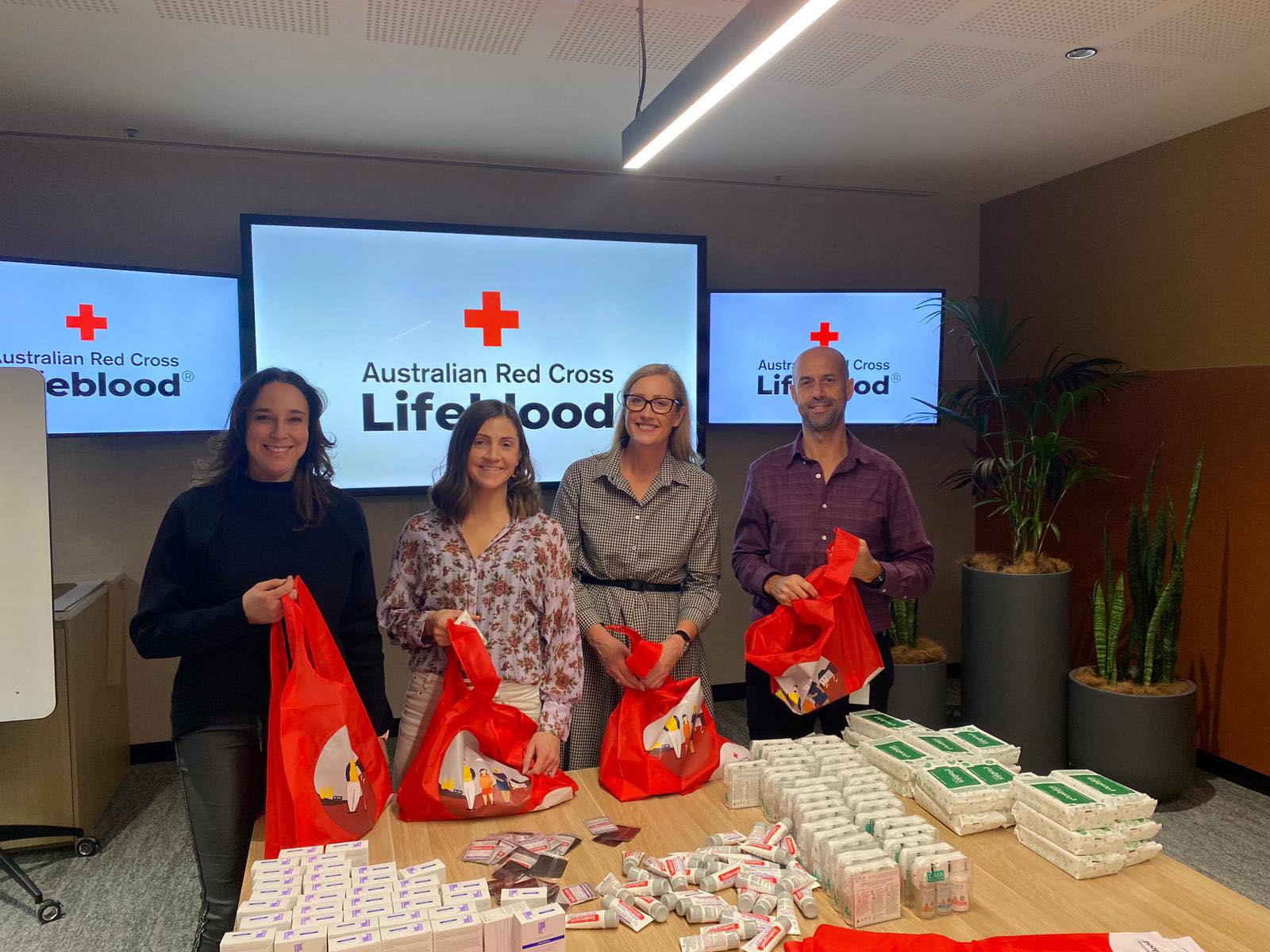Sudocrem donates $100,000 to Australian Red Cross Lifeblood breast milk service

Australia’s most popular nappy-rash cream Sudocrem has donated $100,000 to Lifeblood to further research into how donated breast milk may benefit babies who are born later than 32 weeks.
Australia has closed the gap in helping very preterm babies (born less than 32 weeks’ gestation) access donated breast milk, thanks to Lifeblood’s national milk service, which supplies more than 1000 babies every year across New South Wales, South Australia, Queensland, and Tasmania.
Researchers from Lifeblood have now turned their attention to how donated breast milk can improve health outcomes for babies born greater than 32 weeks, including full-term infants and their families, when the mother’s own breast milk is unavailable.
“Donated breast milk is the World Health Organisation’s recommendation for infant feeding when a mother’s own breast milk is unavailable, because of it’s association with improved breastfeeding rates and protective properties,” said Lifeblood researcher Dr Laura Klein.
“Our research will aim to explore other benefits for infants and their families, including reducing allergies during the first year of life,”
“There’s little research to inform the use of donor milk in babies born after 32 weeks, and funds from Sudocrem will be vital in helping progress our clinical trials into understanding the benefits of donor milk for more babies,”
“We’d like to thank Sudocrem, as part of their Acts of Kindness program, for supporting Lifeblood in this Australian-first research that will potentially help thousands of babies.”
The donation is part of a new partnership between Sudocrem and Lifeblood, which will also allow the two organisations work together to raise awareness about Lifeblood’s milk service.
“Sudocrem has a long history in helping parents and bubs with nappy rash. Sudocrem is very humbled and proud to be able to continue to support parents and babies in a new and innovative way with our financial support to Lifeblood’s Milk program in particular contributing funds for further research to understand how donated breast milk can change the life of even more babies,” said Matthew Draheim, Sales and Marketing Director.
To learn more visit https://www.lifeblood.com.au/milk
“Donated breast milk is the World Health Organisation’s recommendation for infant feeding when a mother’s own breast milk is unavailable, because of it’s association with improved breastfeeding rates and protective properties,” said Lifeblood researcher Dr Laura Klein.
“Our research will aim to explore other benefits for infants and their families, including reducing allergies during the first year of life,”
“There’s little research to inform the use of donor milk in babies born after 32 weeks, and funds from Sudocrem will be vital in helping progress our clinical trials into understanding the benefits of donor milk for more babies,”
“We’d like to thank Sudocrem, as part of their Acts of Kindness program, for supporting Lifeblood in this Australian-first research that will potentially help thousands of babies.”
The donation is part of a new partnership between Sudocrem and Lifeblood, which will also allow the two organisations work together to raise awareness about Lifeblood’s milk service.
“Sudocrem has a long history in helping parents and bubs with nappy rash. Sudocrem is very humbled and proud to be able to continue to support parents and babies in a new and innovative way with our financial support to Lifeblood’s Milk program in particular contributing funds for further research to understand how donated breast milk can change the life of even more babies,” said Matthew Draheim, Sales and Marketing Director.
To learn more visit https://www.lifeblood.com.au/milk

